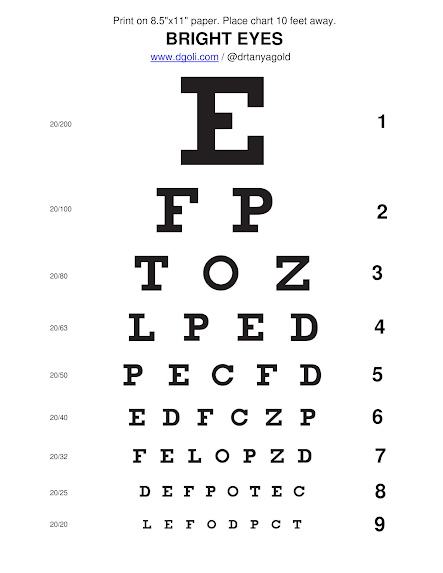What to Eat for Weight Loss?
What to Eat for Weight Loss?
Have you
tried to lose weight and failed miserably? Or more than likely you lost weight
but couldn’t maintain it long term (>5 years), maybe even gained MORE weight
than where you started.
Nevertheless,
know there’s HOPE and YOUR HEALTH is so much more than just what you weigh.
It’s about how your body is functioning.
Remember you
can feel fine and NOT BE FINE! That’s why a person may NOT be in the hospital
when they initially have a heart attack, because they didn’t feel bad the day
before.
Of course,
if you feel bad, get evaluated sooner, rather than later!
I’ve had
patients with extremely high blood pressure and/or blood sugar that didn’t even
know it.
That’s why
it’s so important to get early marker testing to monitor that your body is
FUNCTIONING WELL (more on this next week). These objective studies can also
help YOU maintain a healthy weight.
It’s not
just what YOU eat, but what YOUR Body Absorbs.
What to
EAT & NOT to Eat[1]
As I
prepared for my first bodybuilding contest this April, I learned that strong
abs are primarily made in the kitchen[2]
(basically determined by what I ate), and good cardio (not just by a ridiculous
number of sit-ups).
Research
shows to build good muscle and maintain a healthy weight[3]
(for most), you need good protein[4][5],
meals lower in simple carbs and bad fats, regular cardio, a relaxed mindset, and
nutritious foods high in fiber (essentially a plant-based diet).[6]
That’s why
Keto and Paleo[7]
diets are so popular. It’s not rocket science, and there are many great books
and online forums to learn this in depth.
Here I will
focus on what worked (and what didn’t) for me and several of my patients.
1.Salt (aka sodium chloride) “Are you Salty?”
a.We all need some, especially if you sweat or are active,
but too much can make YOU PUFFY (causing weight gain) because salt
attracts water.
b.Salt is in many foods and the CDC guidelines recommend only
one 1 tsp a day (2300mg), less if you have high blood pressure, heart disease
or edema. If you salt foods, you’re probably getting too much.
b.Salt dulls the senses so you may not even taste how salty
something is, please check. Restaurants are notorious for adding a lot of salt.
I suggest asking them to add very little salt or none, and that way you can
season it properly, and start to taste what real food tastes like without salt,
to recalibrate your taste receptors. You can also try rinsing some of the salt
off.
c.The problem is salt tastes good, it’s a cheap additive and
in many foods and beverages (healthy and non-healthy) and can cause many
illnesses, especially if they use MSG (which has been considered a neurotoxin)[8].
d.The best thing to do is read labels, look at serving size, and
check how much salt you’re consuming. Get low sodium products and use other
non-sugary seasonings like dill or mint for flavor. Some soups contain 1500mg
in one serving.
Once I reduced my salt intake, the bloating in my belly and
swelling in my legs started to disappear, and my weight dropped significantly.
2.Cheese-
“Are you Cheesy?” (I personally love cheese!)
a.Pay attention to the amount of saturated fat and salt (30g=1oz)[9]
b.Contains no fiber and therefore can be constipating or
cause bloating
c.Can be a source of belly fat if you eat too much or combine
it with refined carbohydrates i.e mac-n-cheese. [10][11]
The
Good News
There are
many healthy substitutions. Below I will share some of my go to recipes during
my training.
1.Macaroni-n-cheez
from Plant
Based Parents
2.Low carb pasta (I used this to make pasta and sauce and in chicken noodle
soup)
4.Popsicles containing real fruit (nice way to sneak them in and get
hydrated).
Do you drink
enough water? Guidelines recommends at least ½ your body weight in ounces, so
your urine is clear (unless there’s a contraindication). Sparkle it up with
fruit and mint, and use carbonated water. I call it my cocktail and put
it in a nice glass. It can help flush out excess salt.
*The above
information does not constitute personal medical advice. Please speak with your
health care provider first, before implementing any major health changes.
Are YOU
up for the Nutrition challenge?
Pick one
area of health you will work on. Maybe it’s reducing the amount of salt or
increasing your water intake or heading to Krav more often. Whatever you choose
email Drew your plan. Be specific and keep it simple. Those
who enter the contest will be entered into a raffle to win a 1-hour
consultation with Dr. Gold. For those completing the contest, there will be a
grand prize.
No need to
wait for the new year to get healthy. If you fell off track, this is the perfect
time to BEGIN again.
As our
Grandmaster Steve astutely explains along with our brilliant Senseis’ and
Sempeis’ “You never fail, as long as you NEVER GIVE UP!”
Health is
NOT a one-day affair.
It takes effort, diligence, dedication, and patience (just like becoming a GREAT BLACKBELT). YOU need to figure out what is SAFE and WORKS for
YOUR Body. It is an investment and YOU’RE 100% WORTH IT!
With
warmest wishes, Dr. Gold 😊
[1] https://www.palmbeachstate.edu/wellnesscenter/documents/lake_worth/bestworstfoods.pdf
[2] https://www.ncbi.nlm.nih.gov/pmc/articles/PMC6893503/
[3] https://www.ncbi.nlm.nih.gov/pmc/articles/PMC8701327/
[4] https://www.ncbi.nlm.nih.gov/pmc/articles/PMC5852756/#:~:text=To%20maximize%20muscle%20protein%20accretion,~0.4g%2Fkg%20protein.
[5] https://www.healthline.com/nutrition/10-reasons-to-eat-more-protein#:~:text=Protein%20is%20the%20building%20block,strength%20(%208%20%2C%209%20).
[6] https://www.ncbi.nlm.nih.gov/pmc/articles/PMC5466943/
[7] https://www.healthline.com/nutrition/paleo-vs-keto
[8] https://www.ncbi.nlm.nih.gov/pmc/articles/PMC5938543/
[9] https://www.bhf.org.uk/informationsupport/heart-matters-magazine/nutrition/cheese
[10] https://healthyeating.sfgate.com/can-cheese-give-belly-fat-11361.html
[11] https://www.healthline.com/nutrition/mac-and-cheese-calories#:~:text=Mac%20and%20cheese%20contains%20large,can%20lead%20to%20weight%20gain.




Comments
Post a Comment